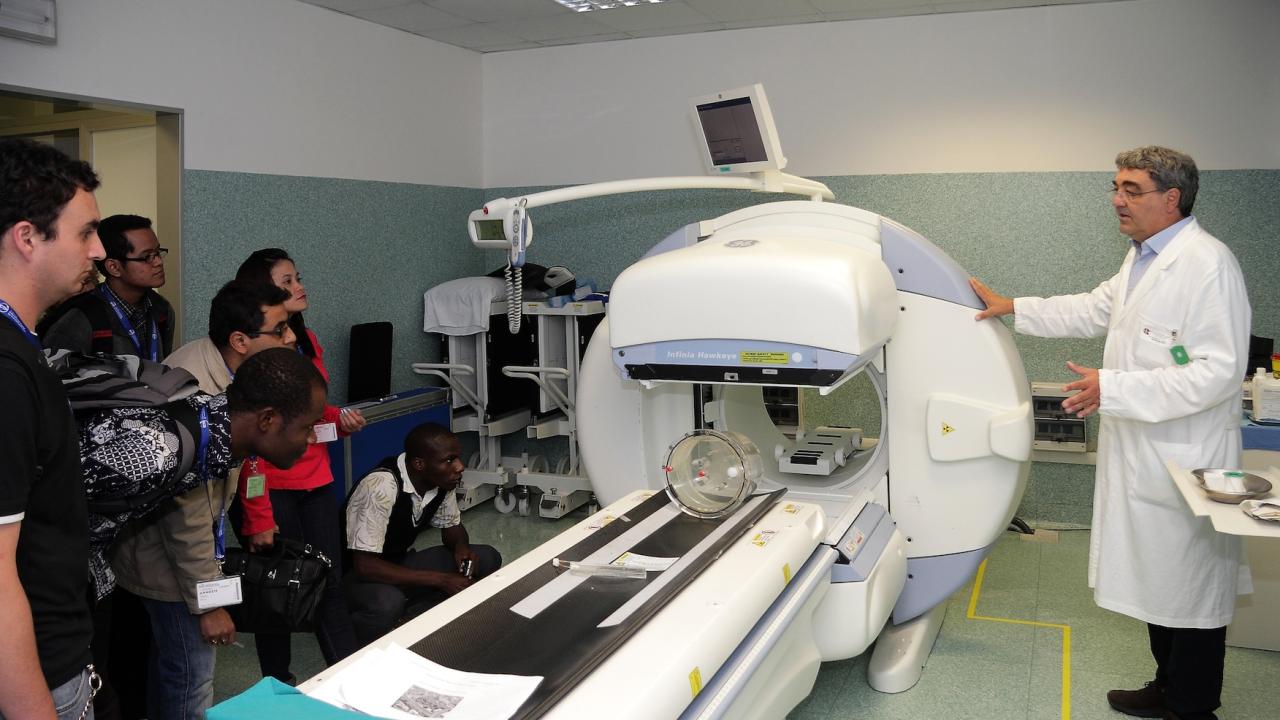
Technological advances in physics and engineering have resulted in the development of techniques and instrumentation that are crucial to modern medicine. Medical physicists--the men and women who apply these techniques to medicine and healthcare--must keep up with cutting edge technologies and their potential application in treating medical conditions.
To that end, ICTP organised the 12th College on Medical Physics from 10 to 28 September 2012 in Trieste, Italy. The activities in Medical Physics at the ICTP started in 1982 with a number of conferences and workshops; the first College was held in 1988.
The college, which targets developing countries, attracted 45 participants from around the world, offering a mixture of lectures, interactive discussions, and practical sessions at a Trieste hospital.
Luciano Bertocchi, former ICTP deputy director and one of the directors of the college, says that the activity provides crucial hands-on experience with the latest equipment in the field.
Dr. Mario de Denaro, director of the medical physics department at the Trieste hospital where ICTP's hands-on sessions were held, adds, "During the college, we focused on two important fields related to medical imaging, radiodiagnostics and nuclear medicine. The students worked with computed tomography (CT) and mammography units for the radiodiagnostic part and with a gamma camera for the nuclear medicine part."
"Another important take away for the students is understanding the importance of balance between dosage and precision," says Bertocchi. "For example, while a high precision CT scan will give precise images, practitioners have to keep in mind the dose of radiation used, and ensure that safety recommendations are followed."
Both Bertocchi and de Denaro say that for young medical physicists from developing countries it is important to view and handle the equipment and at the same time ensure quality control of the procedures used.
"One has to keep in mind that technology in developing countries is advancing fast, so the physicists need to be ready to use that technology," says Bertocchi. "Moreover, this college gives participants a chance to interact with each other and with local physicists, so they can start co-operative ventures." Ultimately, says Bertocchi, participants will share their new knowledge back in their own countries.
















